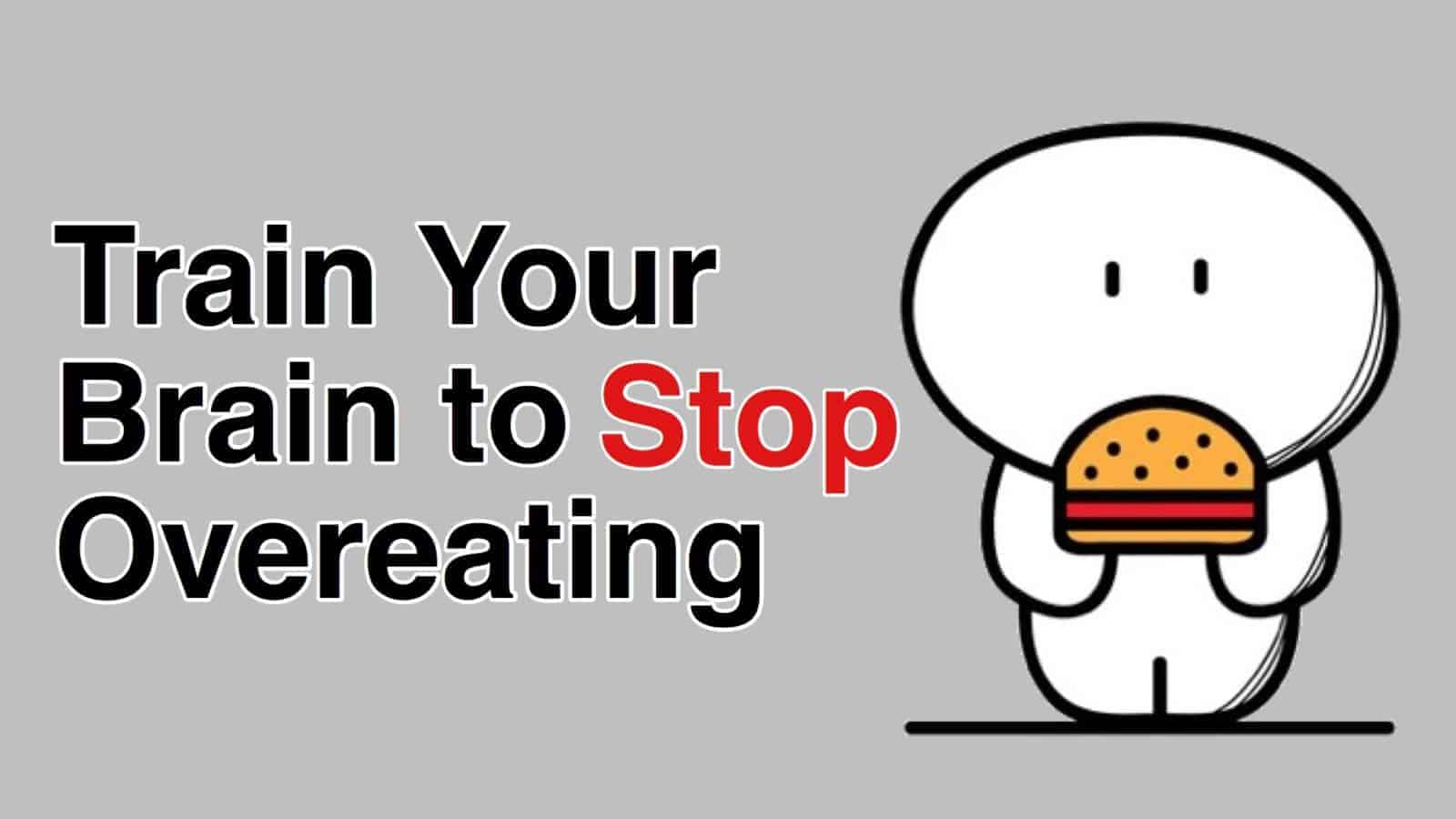Overeating is a problem for many people, but getting to a place where you can recognize hunger cues can be difficult. Not to mention, many people overeat to try to cope with emotions, deal with stress, distract themselves from boredom, or because of an eating disorder.
We will provide some tips in the article below about how to retrain your brain to stop overeating, but please remember, if you continue to struggle with eating habits, consult the help of a licensed professional.
How to Train Your Brain To Stop Overeating
Train your brain to measure your hunger to stop overeating
Ask yourself this one question: ‘On a scale of one to ten, how hungry am I really?’ Think of this scale as a ten as if you went without food for more than 24 hours and a one on the scale as if you had just eaten a big Thanksgiving meal. If you look at your level of hunger this way, you can see that you probably aren’t literally starving and you are also not stuffed from just eating, but that you are really somewhere in between. Identifying the level of your hunger helps you see that maybe you could use just a small snack now and that will allow your hunger rating to come down a bit.
Train your brain to pay attention to the signs of hunger
Is your stomach rumbling? Do you feel a little light-headed? Your body knows when it needs nourishment and it sends signals like a growling stomach that are so obvious that even other people can hear that you’re hungry. So use that information. If you aren’t getting signals like these, could your brain be making you overeat?
Identify your current emotional state to stop overeating
Awareness of your emotional state will help you to see patterns when your brain sends signals to overeat. The phrase ‘comfort food’ is used because it does exactly that; give us a sense of warm, well-being and happiness that is just what we need when we are upset, frustrated, or a little sad about something.
Our emotions can influence us to seek comfort through food. Avoiding this pitfall by increasing your awareness of your emotions before you go to the kitchen to get a snack is one way to train your brain to stop overeating. Post a reminder on the fridge or wherever you keep the hidden stash of cookies that says ‘Wait. How am I feeling?’ Catching yourself before you choose to eat is key.
Train your brain to notice overeating
We all need food to live. It is one thing that none of us can do without, but how much is too much and how can you tell your brain that you’re done eating?
A study in the journal Health Education Research show that improving your level of self-efficacy can help you avoid overeating. Self-efficacy is your belief in yourself to prevent yourself from overeating. Increase your self-efficacy by remembering times when you have stopped yourself from overeating to reinforce and train your brain to stop overeating.
Train your brain to notice marketing influences on overeating
Brian Wansink, food habit researcher and author of Mindless Eating, says that every time we make a food choice, unless we are looking at only raw whole foods, marketing and advertising are working against us to influence us to consume more of products that companies want us to buy. Wansink says from restaurants to grocery stores, ‘Plate shapes and package sizes, lighting and layout, color and convenience: these are a few of hidden persuaders that can contribute to how much food a person eats.’
Related article: 7 Ways to Put Your Metabolism into Fat-Burning Mode
Wansink says that we make a choice not only about what to eat, but also about how much to eat every time we are hungry. Wansink says we overeat for two reasons. One way we can train our brains to stop overeating is to identify the cues that cause us to keep eating after we aren’t hungry anymore. For example, your brain says to eat until your plate is clean? Use a smaller plate. You can’t stop eating chips if you open the bag? Measure a reasonable portion size into a smaller bag and use that as a serving.
The second reason we overeat is that we aren’t good at figuring out when we are no longer hungry. In a study that illustrates this, Wansink’s team designed a fake restaurant and refillable, trick soup bowls that they asked guests not to touch. The study found ‘those who had been given these ‘bottomless bowls’ ate an average of 73% more than those eating from a regular bowl. When asked if they were full, a common response was, “How can I be full, I still have half a bowl left.”



















